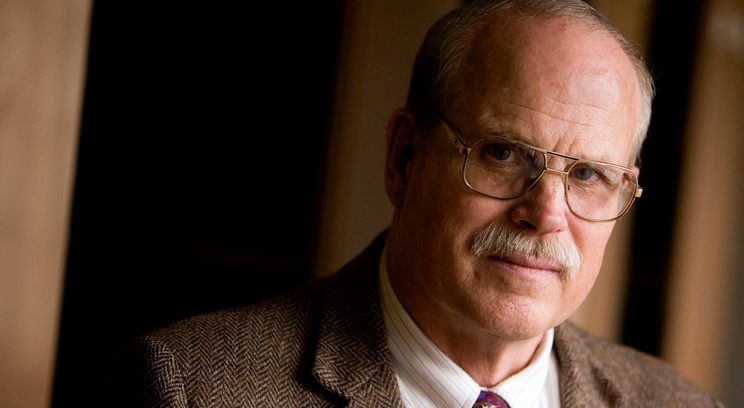As young boys Jack* and his cousin Andrew* were very close, but over the years they lost touch. Jack married, had two children and had saved money for his daughter’s college education; meanwhile, his cousin had chosen a darker path. Jack read in the newspaper that Andrew had been arrested on felony charges. Family members contacted Jack about posting bail money for his cousin. Jack decided to loan him $37,000 in college savings, thinking it was temporary financial help.
Unexpectedly, Andrew pled guilty to the charges and Jack’s loaned money was signed over to the attorneys. “This was after Andrew fraudulently encouraged (with a check that was later canceled) my client, Jack, to not go to the court appearance,” explained Kerri Kovalesky ’13, who worked in the School of Law’s Bankruptcy Litigation Clinic and represented Jack.
Although Andrew claimed he would return the money as soon as the court returned it to him, he never intended to do so, and instead used the funds for his own benefit, to pay his criminal lawyer. Andrew subsequently claimed he would pay his cousin back, only to later file for Chapter 7 Bankruptcy seeking to discharge the debt. When a person obtains funds by fraud or swindle, as Andrew did in this case, they cannot discharge them in bankruptcy.
That’s why the School of Law’s Bankruptcy Litigation Clinic took on Jack’s case. The law school offers two bankruptcy clinics, one for litigation and one for consumer debt. The School of Law worked with shareholder Steven Silton and office managing partner Thomas Wallrich from the law firm of Cozen O’Connor to launch the Bankruptcy Litigation Clinic, now in its second year. Nadia Hasan, a clinical instructor and partner at Cozen O’Connor, instructs and supervises the students in the clinic.
Clinical students have appeared in court, argued motions, taken and defended depositions, participated in settlement negotiations and counseled clients on litigation risks during the two-semester clinic.
Jury trials in bankruptcy court are common. According to Hasan, a federal jury trial is an amazing opportunity for a law student, and given the high percentage of cases that settle, even seasoned attorneys are eager to have these opportunities; additionally, the trials typically last only one day, making them a perfect opportunity for a student attorney to try a case without it being too overwhelming.
Kovalesky worked on Jack’s case with Hasan.
Hasan said, “On the eve of the trial, they settled with us for the full amount. The debt was not discharged, so Andrew still owes his cousin the money.”
“Kerri achieved a great result,” she added.
“As much as I’d like the experience of going to trial, this is the best case scenario,” Kovalesky said. Jack didn’t have to testify against his cousin, and he didn’t have to forfeit 10 percent of the $37,000 for court fees.
“This case was a unique experience because it was the reverse of what you normally get to do,” Kovalesky said. Usually bankruptcy litigation involves defending a debtor who has been sued for a denial of discharge, but in Jack’s case it was the opposite.
“I absolutely loved the opportunity to work on this case,” Kovalesky added. “Even if you worked in bankruptcy, you might not normally see this kind of case. [Through this clinic] I had so many experiences in and out of the courtroom that I wouldn’t have had otherwise.”
Consumer Bankruptcy
“Never spend more than you make” – many people try to follow that adage by planning ahead and saving money, but then the unexpected happens. A good paying job is terminated, a medical emergency occurs or an investment proves unwise. By filing Chapter 7 Bankruptcy, they hope to get back on their feet.
Law students help people file Chapter 7 documents in the Consumer Bankruptcy Clinic, which was launched in 2010 by Silton and Wallrich. They are assisted by clinical instructor and attorney Joel Nesset, also from Cozen O’Connor. Clients are referred to the clinics through the Volunteer Lawyers Network.
“The consumer bankruptcy process allows low-income and fairly poor individuals to discharge substantial debt,” Silton said. “It’s not a way for debtors to avoid paying debts; often it’s people with medical bills. It gives them a fresh start.”
“We do about 20 or more cases a year,” Silton said. “Every single student in this clinic has filed a debtor through Chapter 7 and received a discharge. We’re coming up on 100 debtors who have been filed.”
This experience is invaluable to students. “It’s so rare to be able to argue a motion in federal court before graduating,” said Kovalesky, who also worked in the Consumer Bankruptcy Clinic.
In the one-semester clinic, she went to court with three cases. “All of my clients were working but trying to catch up,” she said. “They had more bills than their paycheck could cover and nowhere else to turn.”
Clinical students also represent their clients in federal court to determine what debts are dischargeable.
“Many have recovered multiple thousands of dollars in dischargeable debts,” Silton said. “It’s difficult to quantify, but it’s dramatic.”
“Clients have a real relationship with students,” Silton added. “When I show up at administrative hearings related to consumer cases, the clients look at the students as their counsel, not me.”
Kovalesky appreciated being trusted with that responsibility.
“Someone was depending on me to do it accurately because their financial livelihood depended on it. My experience working in clinics was the best part of law school,” said Kovalesky, who was sworn into the bar in October.
Through both the Consumer Bankruptcy Clinic and Bankruptcy Litigation Clinic, students have gained valuable training for their careers by working with local bankruptcy attorneys and representing real clients while still in law school. Their clinical work gives them a head start in the employment world, while it gives their clients a fresh start in the financial world.
*Names have been changed to protect privacy.
Read more from St. Thomas Lawyer.







